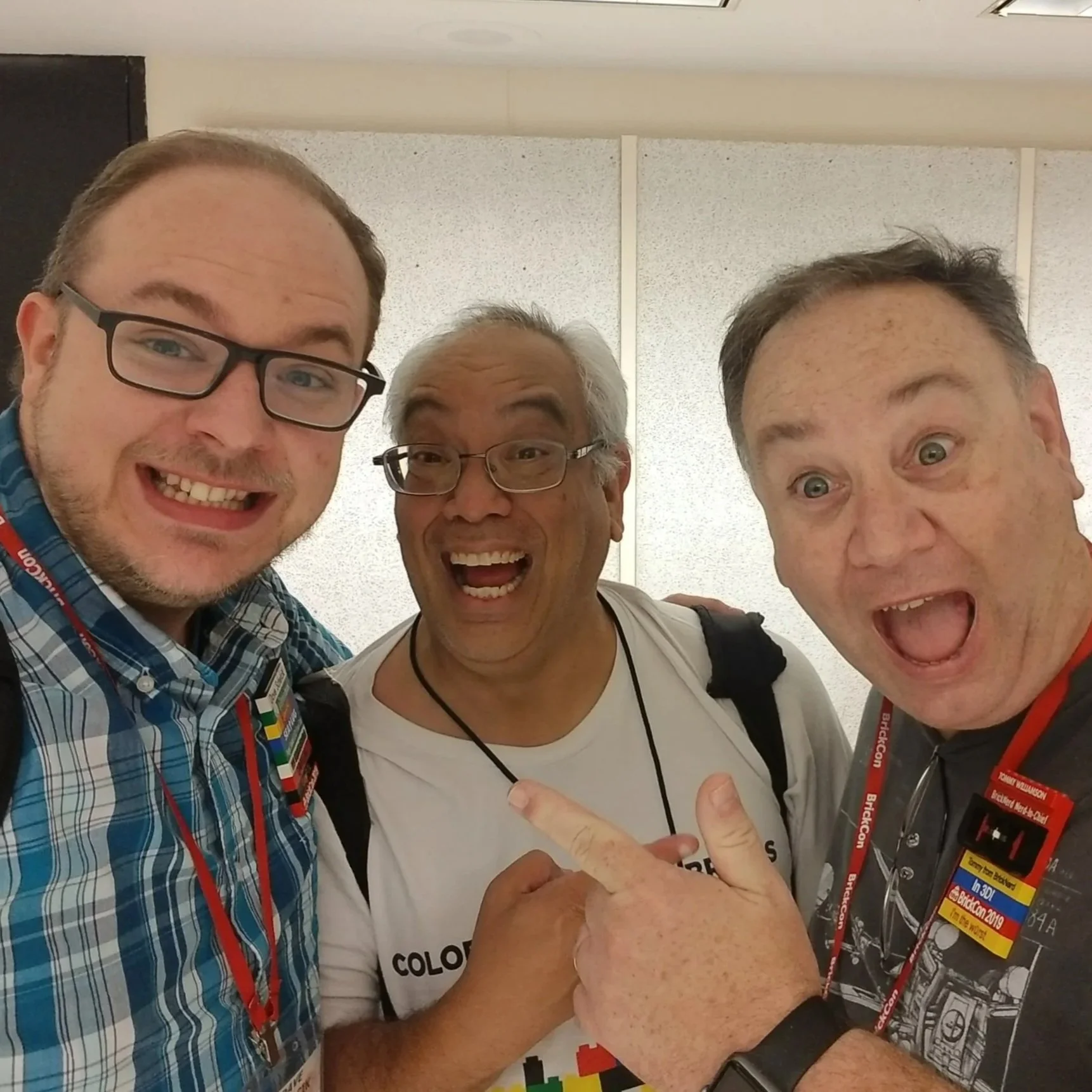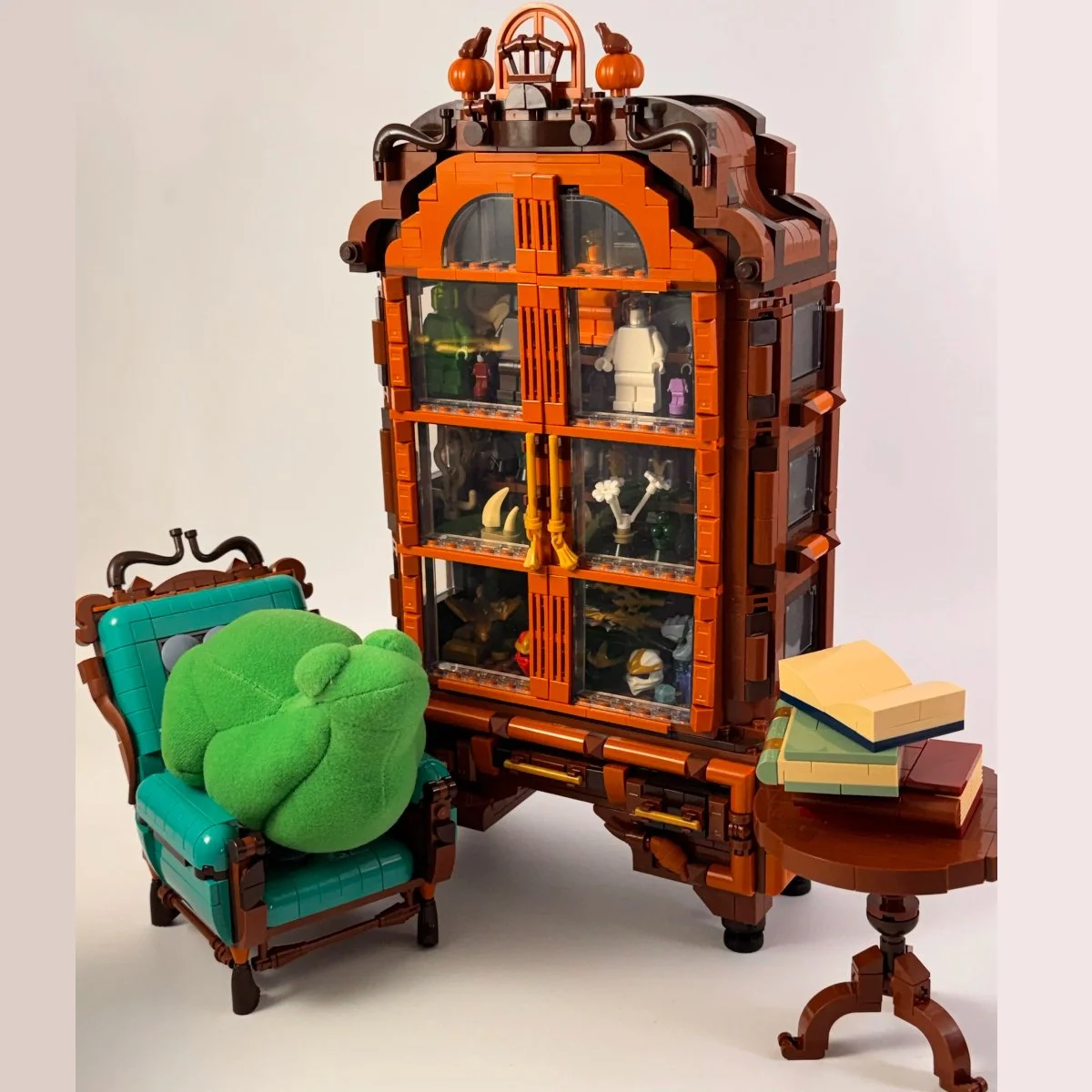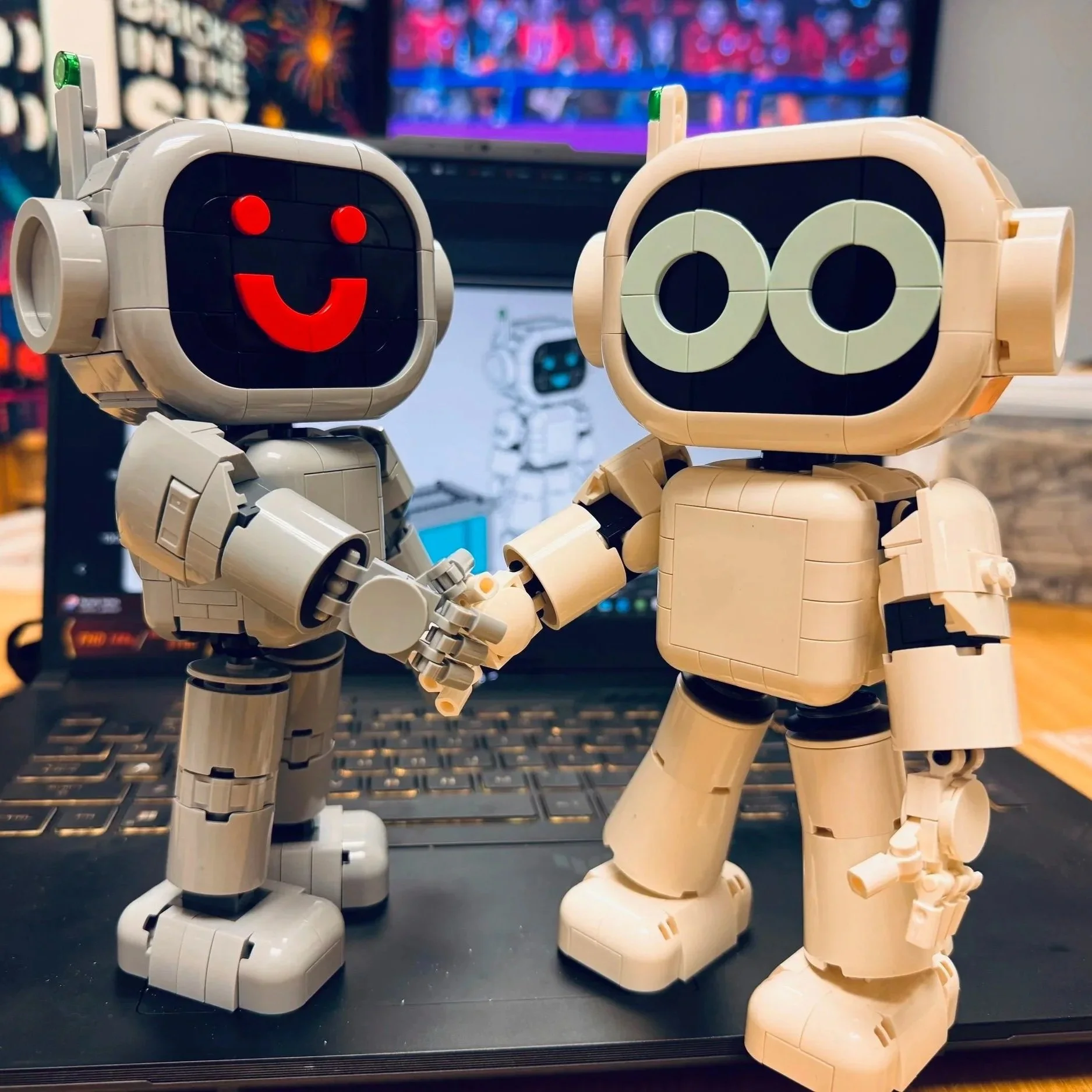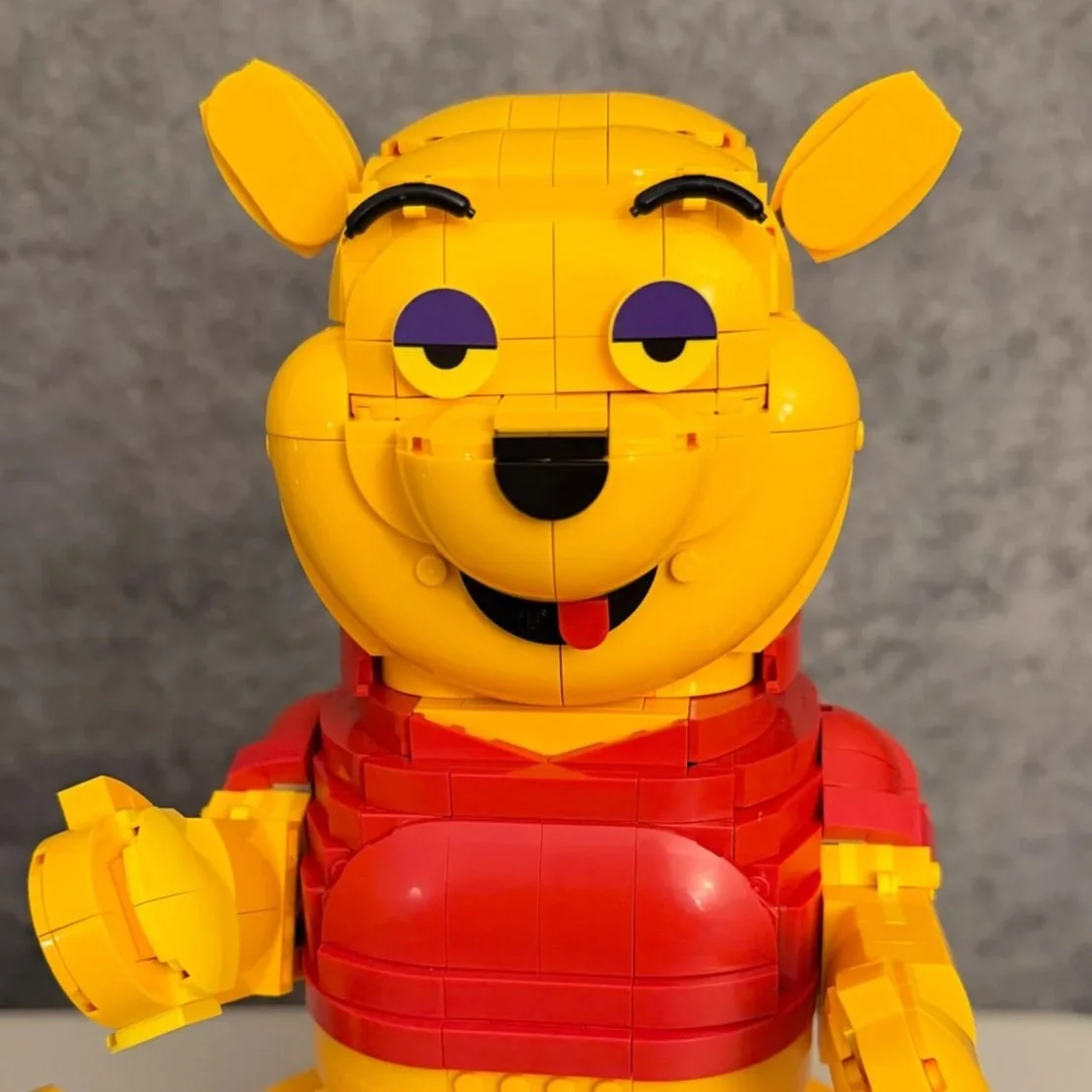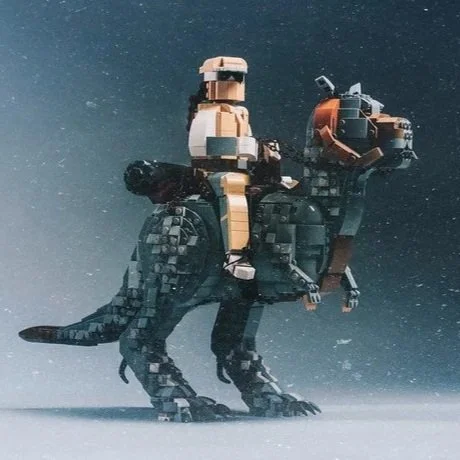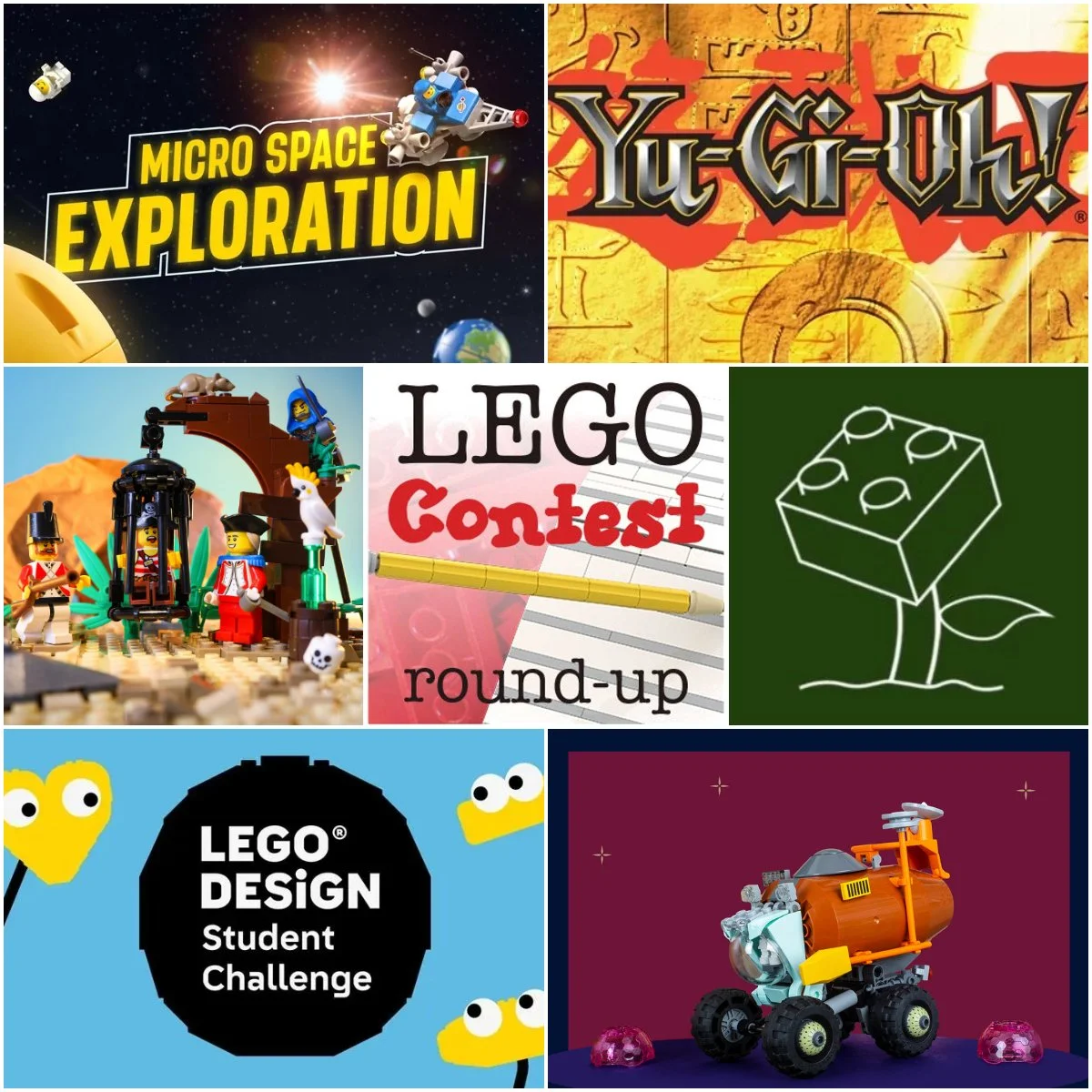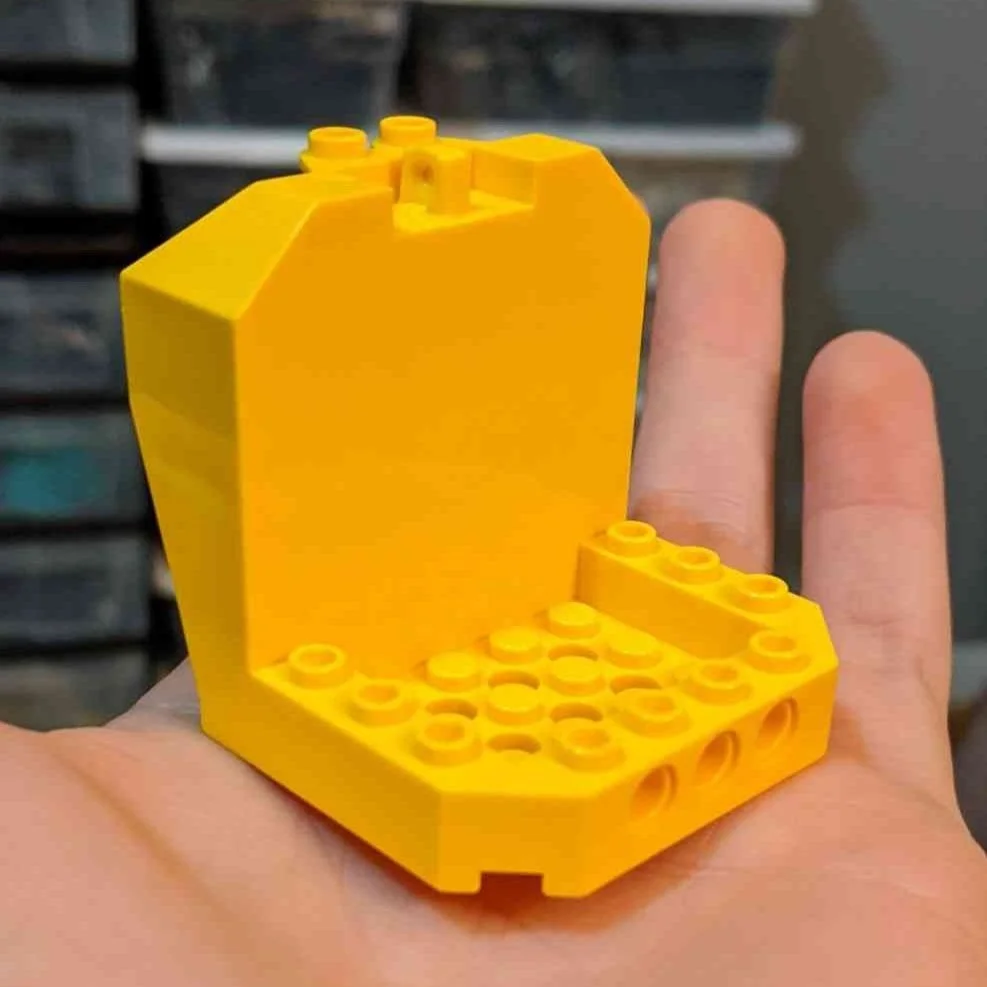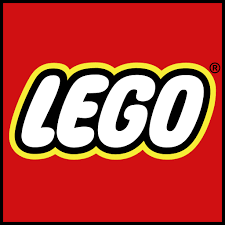From TFOL to AFOL: An Unexpected Journey
/Best of BrickNerd - Article originally published August 4, 2022.
Today’s guest article is written by Ben Bartlett who is a student at St. John's College. You can find his work on Flickr as #1 Nomad.
From TFOL to AFOL
This year, I attended my first convention as an AFOL. And, in celebration of this, I displayed with a LUG and in a collab for the first time. It felt like I was ascending from my former TFOL self, becoming a grown-up doing grown-up things. It felt as if I had become a fully-fledged member of the LEGO community at large.
However, I couldn’t have felt this way without the rich environment I had as a TFOL. I was fortunate enough to have great builders supplying advice and encouragement for my MOCs. These people made me feel included in the community at a young age; they wanted me to be heard and to improve. The distance between being a TFOL and being an AFOL was bridged for me, providing a safe voyage to where I am today.
I was in a deep military phase when I began exploring the LEGO community. Perusing Flickr, I found that military builders were active and plentiful, creating everything from minifigure-scale vehicles to huge collaborative depictions of battles, ranging from ancient wars to modern ones. Middle school me was fascinated by the custom pieces and kits I saw in these MOCs, particularly BrickArms’ guns and Citizen Brick’s minifigs. It was exhilarating to find what felt like an underground LEGO fanbase, one that felt tailored to me.
Getting Drafted
So, when I discovered that Brickmania hosted World War Brick, an annual convention for fellow military builders, I knew I’d have to go. I had no idea whether any of my Flickr inspirations would be there, but I knew it would be a solid introduction to members of the LEGO military community. My dad and I left the day before the convention began, overnighted at a rest station an hour away from Brickmania’s headquarters, and arrived the next morning. Earlier that month, I had built a little scene of a trench being ambushed. I wanted to display something to feel like I had participated. And participation, I figured, would get me closer to understanding who the LEGO military community was.
That was definitely the right turn to take. The overwhelming majority of attendees simply wanted to talk — talk about their rare and exclusive parts, how they planned their MOCs, how large their collections were, and what they wanted to build next. Without a MOC of my own, these conversations would’ve felt exclusive and one-sided. It’s difficult to hear the struggles of landscaping or building a tank without having attempted to do it yourself. Most of the attendees wanted to trade their custom parts as well. They’d walk around with tackle box organizers stuffed with pieces, ready to see if someone had a better gun or a rarer minifigure. But beyond trading for trophy pieces, these people were searching for what they needed — Vietnam soldiers for an upcoming build, reloaded revolvers for a better Wild West MOC. With this realization, I began to view this community as more than a group of military junkies: this is a fanbase dedicated to historical accuracy and storytelling, attempting to make the past known through their little LEGO blocks.
Dedicated to serving this mission, I attended World War Brick again the following year. And, to my surprise, I won an award — “Hammer’s Choice,” given to the MOC that Scott “Hammer” Weekley, a designer at Brickmania, enjoyed the most. It was a sign that people were genuinely interested in what I was building. In celebration of this award, and with a little convincing from my World War Brick friends, I created a Flickr page to share myself with the greater LEGO community.
But the award was not for a military build. I had built a camp being ambushed by zombies, as my interests were shifting to apocalyptic media. And, shortly after this convention, I began to lose my attachment to the military-building community. I began creating whatever I wanted, exploring different themes and concentrations to expand my repertoire; while I did build tanks for two and a half months following World War Brick, they quickly became overshadowed by my cyberpunk pursuits. I also realized that I couldn’t fund my relationship with the military-building community. My cash flow as a TFOL was shallow and inconsistent, and I understood if I wanted to remain in touch with that community I’d need to purchase more third-party items to either trade or use. I ultimately decided that my LEGO budget should be used to expand my then-small collection of bricks, leaving my BrickArms and Citizen Brick figs to fight their wars in storage.
Brickworld Beginnings
As my thematic horizons expanded, I began searching for another convention to attend. I wanted something larger, something more diverse. By this point, my interest in the LEGO military community had all but vanished, and I was seeking the ability to talk with seasoned, veteran builders of other communities. Brickworld Chicago seemed to be the best choice of my options. This convention was a massive step up in scale, hosting almost eight times the number of attendees as World War Brick. It celebrated a myriad of themes, attracting a diverse collection of builders. It was also an hour and a half away, much closer than Brickmania’s headquarters was.
Arriving in Chicago, I knew no one. None of the friends I had made at World War Brick were coming. My Flickr page had amassed somewhere close to 300 followers at that point, meaning I at least had some kind of a digital footprint. But I was energized by that thrill of knowing no one. I, a young TFOL belonging to no LUG nor online group, was headed to meet as many of the 750 or so attendees as I could.
And, despite being a blur five years later, I know that my energy paid off. The Flickr creators who inspired me at the time were situated a few tables over at the ToroLUG display: Markus Rollbühler, Simon Liu, Grant Davis, John Klapheke. All four of them were approachable, amicable, and they entertained all of my technical questions about their MOCs. They proceeded to introduce me to more fantastic builders — Dan Church, Caleb Schilling, Casey McCoy, Ben Cossy, Rocco Buttliere — all of whom acted as kindly as the last. In a matter of days, I went from knowing a handful of Flickr builders to being acquaintances with my inspirations.
But these acquaintanceships were only possible because I brought MOCs. I would walk over to a builder’s display, ask a few questions and give a little praise, and then they’d ask me what I had built. It always felt a little awkward leading someone over to my table, but it was rewarding to see my builds praised, questioned and critiqued by these seasoned creators. It was refreshing to see people uninterested in how many pieces I owned or what rare items I had, but rather fascinated by what talent I displayed. I had nowhere near the repertoire nor the name of these builders, yet they treated me as an equal: a builder excited to share and see the art of others.
This treatment, I soon discovered, was not exclusive to the wonderful builders I had met at Brickworld. Shortly after that convention, I began exploring Discord channels for building competitions — Iron Builders, InnovaLUG Contests, RebelLUG. All of these pages treated members the same way I had been treated in person. Their WIP threads were active and full of good advice, the banter and praise in their general threads were civil and friendly, and their contests felt fair and good-spirited. Their Discord servers were and are welcoming to everyone interested in being there. With this wider view, I began to see that the LEGO community had opportunities for TFOLs and other aspiring builders to grow and thrive.
Building Bridges
I’d say that my transition from being a TFOL to being an AFOL was a lucky one. I was lucky to be a good enough builder to gain the respect of great builders. But I was really lucky to have a space where I could grow strong as a TFOL. The LEGO military community taught me the importance of accuracy and authenticity, and my Brickworld family was a space to brew ideas and broaden my technical knowledge.
As an increasing number of teenagers become interested in the LEGO community or transition to being AFOLs, it becomes more and more important to listen and include them. These builders have inspirations like I did. They have builders whom they aspire to be. They want to grow and share just like us. But it is we AFOLs who open the door and allow them to share, to blossom. We are their trellises, the supports to their success. And if we shut the door on them, we make the LEGO community an exclusive space that no TFOL would ever want to be included in, an isolated island with no bridges to cross to. I’m so thankful for the bridges I was able to cross from being a TFOL to an AFOL, and I hope to be a literal bridge builder to help others on that same journey.
What helped you transition from a TFOL to an AFOL? Let us know in the comments below!
Do you want to help BrickNerd continue publishing articles like this one? Become a top patron like Charlie Stephens, Marc & Liz Puleo, Paige Mueller, Rob Klingberg from Brickstuff, John & Joshua Hanlon from Beyond the Brick, Megan Lum, Andy Price, John A., Lukas Kurth from StoneWars, Wayne Tyler, LeAnna Taylor, Monica Innis, and Dan Church to show your support, get early access, exclusive swag and more.









